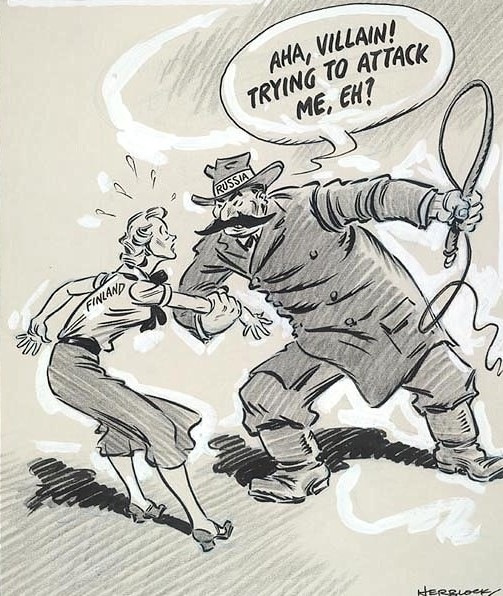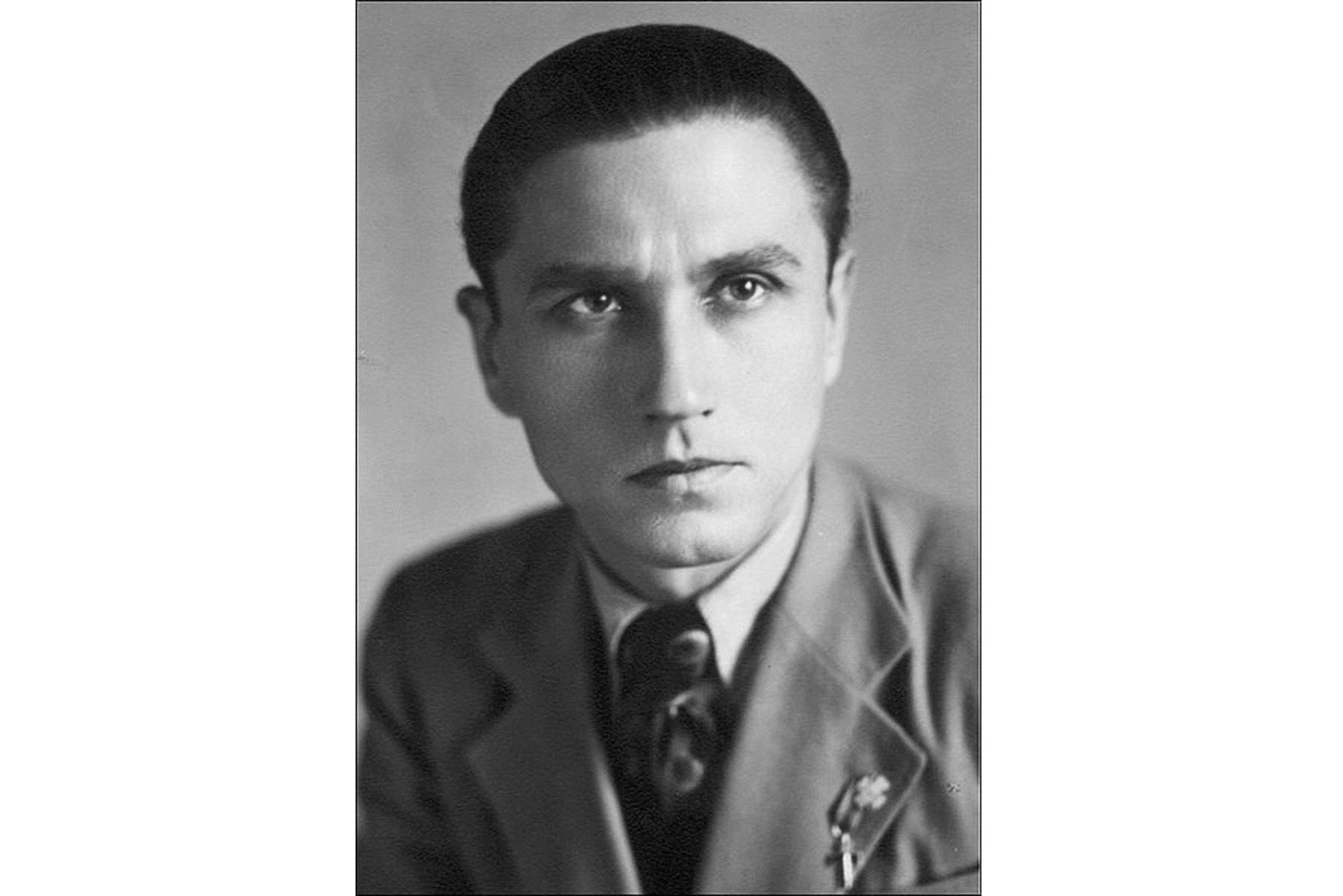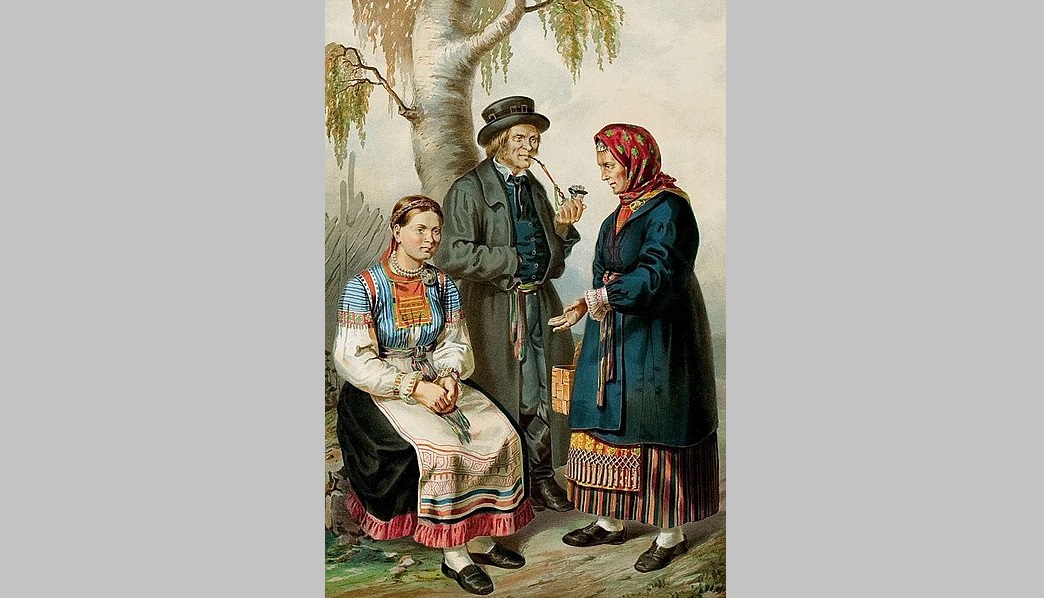 The unprovoked Soviet attack so angered the Finns that thousands of them immediately took up arms and went to the front, often without uniforms as none were available. Vastly outnumbered in personnel and arms, they were inspired by Marshal Mannerheim who said “we are fighting for our home, faith and fatherland.”
Soviet forces were inspired by a quite different idea: they had been told that they were “freeing the Finnish people from the oppression of the capitalists,” but after a few days Soviet soldiers on Finnish land were asking themselves “Why are we liberating the Finns? They live so well.”
Moreover, the Soviet forces found they had no one to liberate because the Finns withdrew from the border regions, burning their homes and farms so that the Soviets would not get anything they might use against Finland.
On the first day of fighting, the Soviet media announced that in a “liberated” village near the border, a new Finnish government had been formed, headed by Otto Kuusinen, the communist whose revolt Mannerheim had himself put down in 1918. A day later, he signed a mutual assistance pact with the Soviet government to “legalize” the Kremlin’s aggression.
In preparation for this campaign, the Soviet military had created, beginning in October 1939, a “Finnish Peoples Army,” filling it with Finns and Karelians who lived on Soviet territory and then even with Belorussians That step led to a Soviet joke at the time, Shama says: “Minsk Finns will march onto Finnish mines.”
Finland had erected some defenses earlier, and the Soviet command was well aware of those and quite prepared to go around or over them. But, as the Ukrainian commentator points out, Moscow had not taken into account the Finnish will to fight and expected an easy and quick victory, one that was supposed to be complete by Stalin’s birthday on December 21.
The Soviet advance slowed as Finnish resistance grew, but the Finns, having suffered 25,000 combat dead in the course of 105 days of fighting, finally had to sue for peace, even though they had inflicted 126,000 dead on the invaders. And they had to yield a tenth of their territory to Moscow. However, that was less than Moscow had expected to gain, and so it could hardly justify the claims of victory it put out and that were accepted by some in the West. Moreover, the way in which Finland and the Soviet Union treated their combat losses spoke volumes about the differences between the two countries, differences which are in evidence in Ukraine and Russia now.
When the war began, Mannerheim ordered that “each soldier killed was to be buried with military honors” in specially designated cemeteries. In the Soviet Union, Andrey Zhdanov, head of the Leningrad CPSU obkom, “categorically forbid telling relatives of dead soldiers about the destruction of their near ones” and to take other steps to hide such losses as well.
On this anniversary of the Winter War, Ukrainians are thinking about that conflict perhaps more than any other people except for the Finns. Roman Bochkala, a Ukrainian military analyst, spoke for many in his country when he wrote of that distant conflict in terms every Ukrainian would recognize in relation to the current situation. (charter97.org/ru/news/2014/11/29/128592/).
Like Ukraine, the Finns faced an overwhelming adversary, “a horde [which] wanted to suppress its opponents by its size. David went into the ring against Goliath. And he won.” Of course, Bochkala writes, the Finns were frightened but they were not intimidated, and “they fought like lions.”
The unprovoked Soviet attack so angered the Finns that thousands of them immediately took up arms and went to the front, often without uniforms as none were available. Vastly outnumbered in personnel and arms, they were inspired by Marshal Mannerheim who said “we are fighting for our home, faith and fatherland.”
Soviet forces were inspired by a quite different idea: they had been told that they were “freeing the Finnish people from the oppression of the capitalists,” but after a few days Soviet soldiers on Finnish land were asking themselves “Why are we liberating the Finns? They live so well.”
Moreover, the Soviet forces found they had no one to liberate because the Finns withdrew from the border regions, burning their homes and farms so that the Soviets would not get anything they might use against Finland.
On the first day of fighting, the Soviet media announced that in a “liberated” village near the border, a new Finnish government had been formed, headed by Otto Kuusinen, the communist whose revolt Mannerheim had himself put down in 1918. A day later, he signed a mutual assistance pact with the Soviet government to “legalize” the Kremlin’s aggression.
In preparation for this campaign, the Soviet military had created, beginning in October 1939, a “Finnish Peoples Army,” filling it with Finns and Karelians who lived on Soviet territory and then even with Belorussians That step led to a Soviet joke at the time, Shama says: “Minsk Finns will march onto Finnish mines.”
Finland had erected some defenses earlier, and the Soviet command was well aware of those and quite prepared to go around or over them. But, as the Ukrainian commentator points out, Moscow had not taken into account the Finnish will to fight and expected an easy and quick victory, one that was supposed to be complete by Stalin’s birthday on December 21.
The Soviet advance slowed as Finnish resistance grew, but the Finns, having suffered 25,000 combat dead in the course of 105 days of fighting, finally had to sue for peace, even though they had inflicted 126,000 dead on the invaders. And they had to yield a tenth of their territory to Moscow. However, that was less than Moscow had expected to gain, and so it could hardly justify the claims of victory it put out and that were accepted by some in the West. Moreover, the way in which Finland and the Soviet Union treated their combat losses spoke volumes about the differences between the two countries, differences which are in evidence in Ukraine and Russia now.
When the war began, Mannerheim ordered that “each soldier killed was to be buried with military honors” in specially designated cemeteries. In the Soviet Union, Andrey Zhdanov, head of the Leningrad CPSU obkom, “categorically forbid telling relatives of dead soldiers about the destruction of their near ones” and to take other steps to hide such losses as well.
On this anniversary of the Winter War, Ukrainians are thinking about that conflict perhaps more than any other people except for the Finns. Roman Bochkala, a Ukrainian military analyst, spoke for many in his country when he wrote of that distant conflict in terms every Ukrainian would recognize in relation to the current situation. (charter97.org/ru/news/2014/11/29/128592/).
Like Ukraine, the Finns faced an overwhelming adversary, “a horde [which] wanted to suppress its opponents by its size. David went into the ring against Goliath. And he won.” Of course, Bochkala writes, the Finns were frightened but they were not intimidated, and “they fought like lions.”
They understood something that Ukrainians can take to heart: “in war, the main thing is not quantity but motivation and intelligence.”Vadim Shtepa, who lives in Karelia and who supports Ukrainian efforts to defend their nation against Vladimir Putin’s aggression, reflects on this anniversary? “What can one say? The only thing is to wish our Ukrainian friends [in this new Winter War] to be no weaker than the Finns!”





